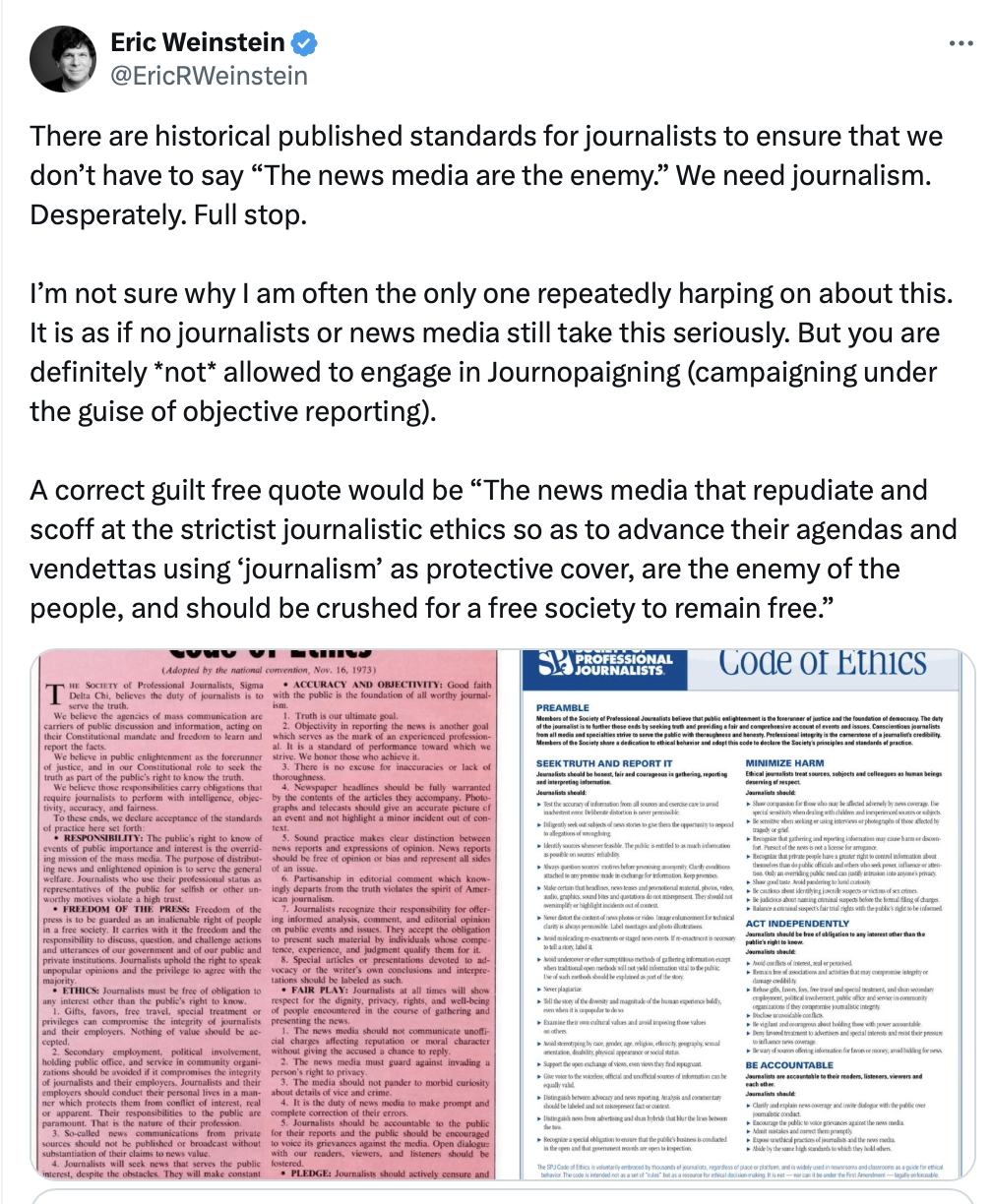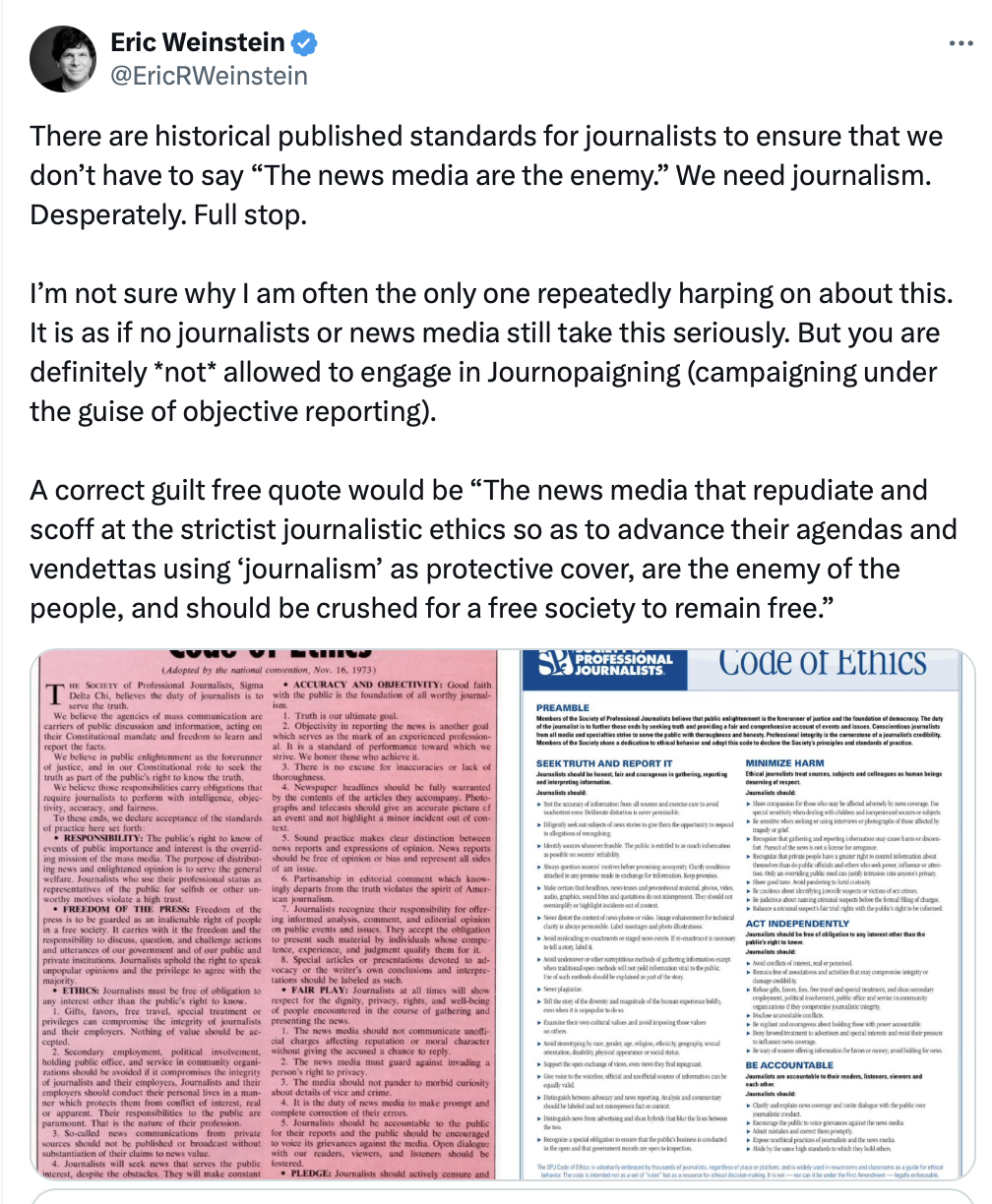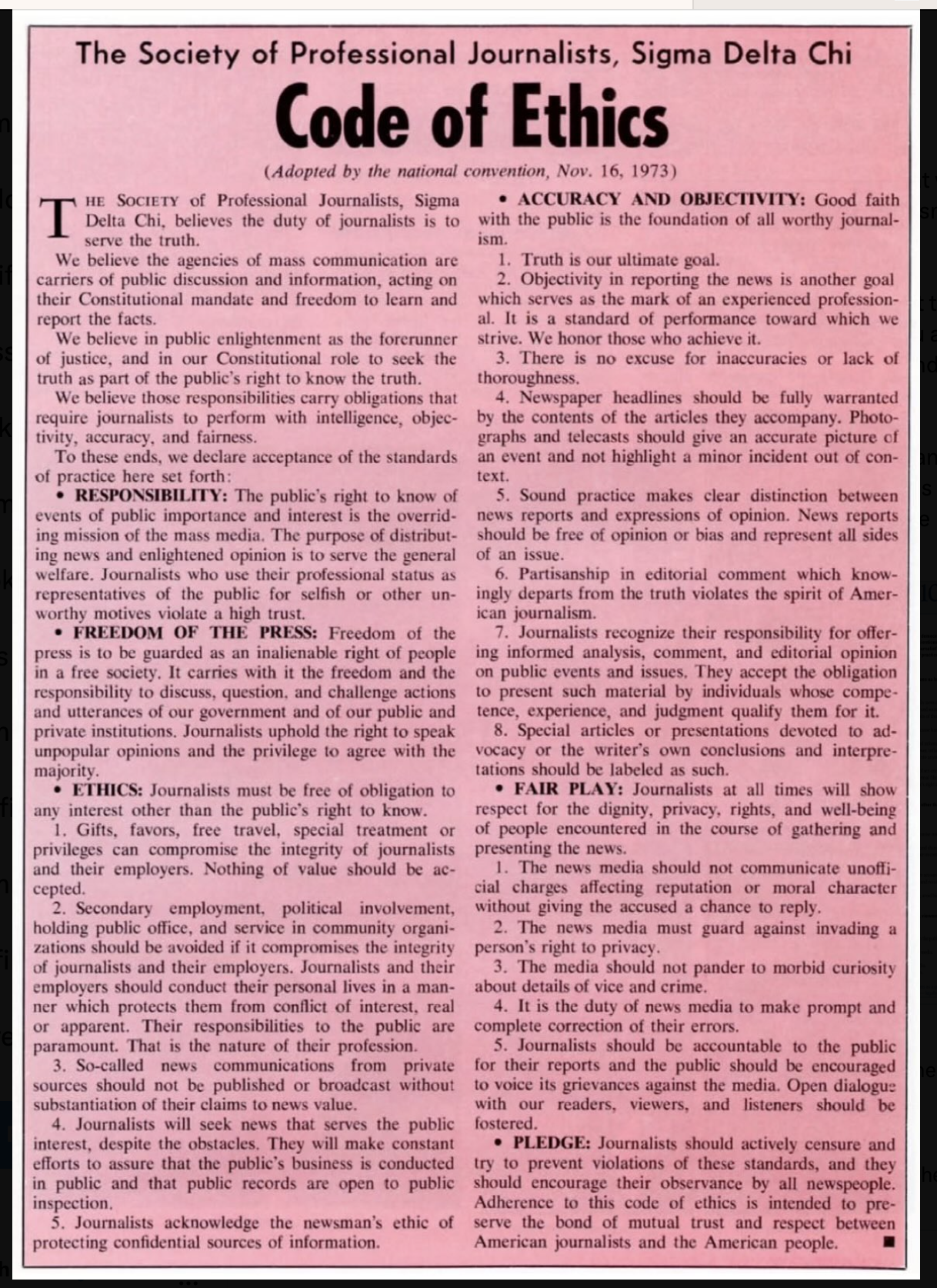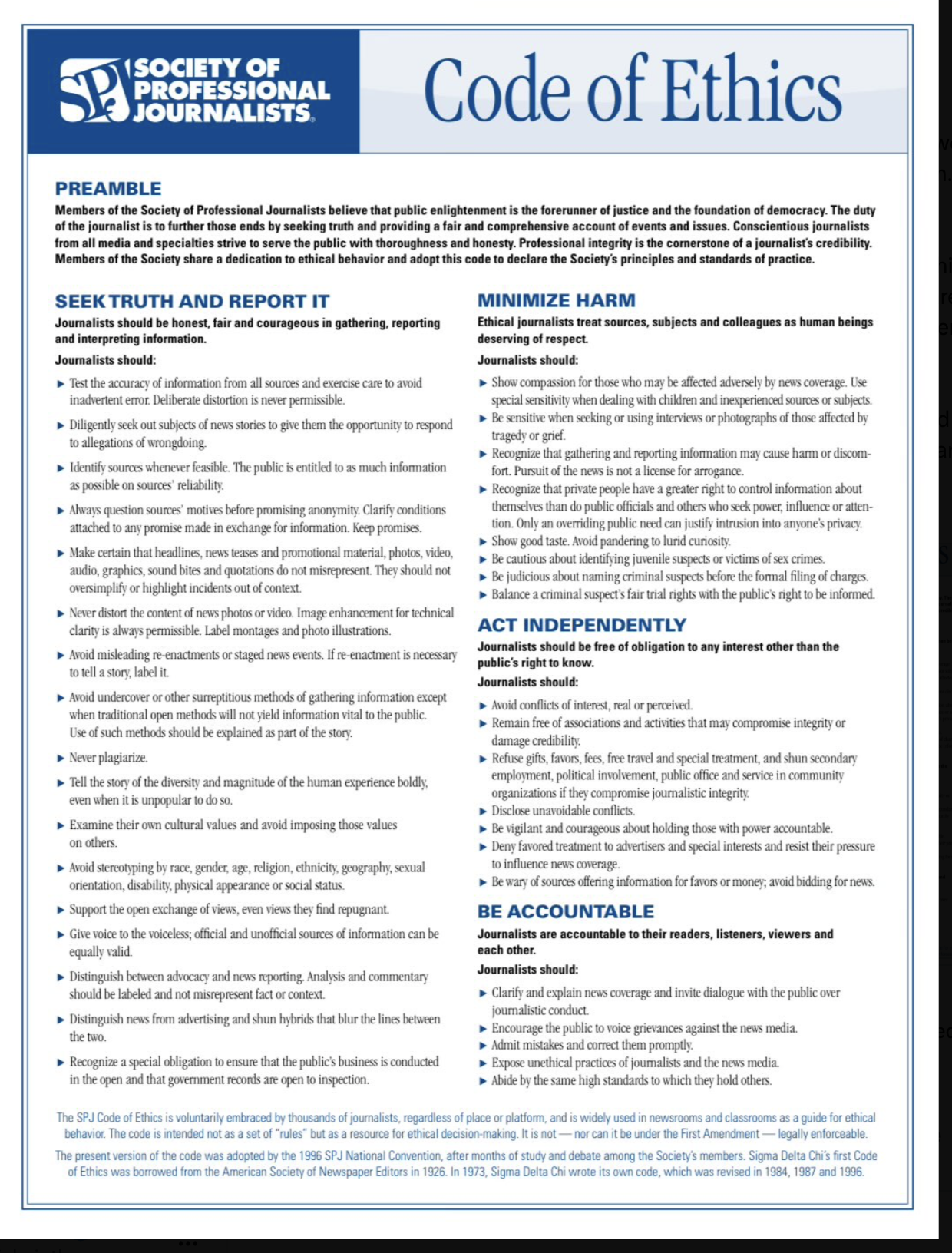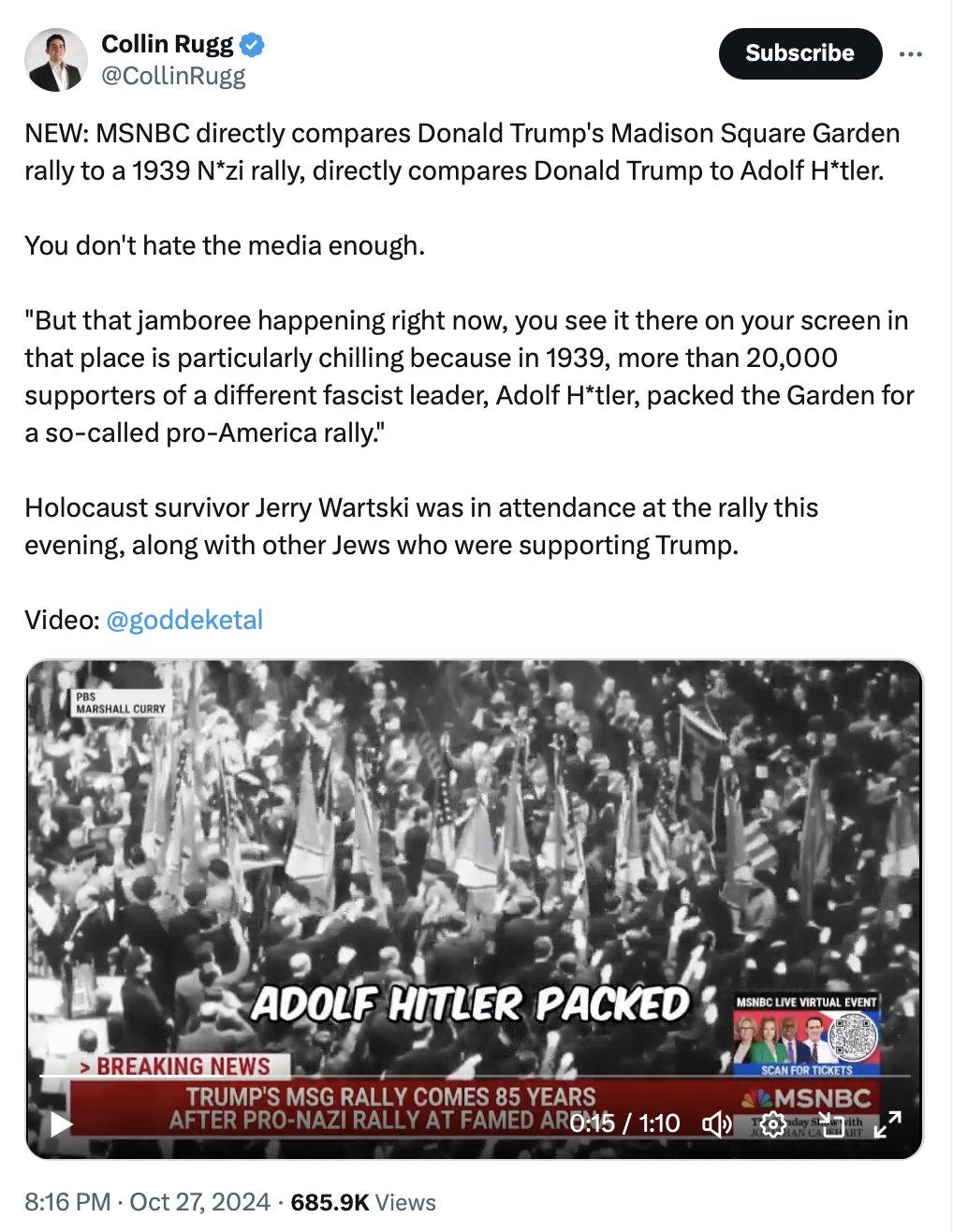RFK, Jr.: The Problem with Experts
Newsweek asked RFK Jr. "why he doesn't stop promoting conspiracy theories".This was his reply:
"My father told me when I was a little boy that people in authority lie and the job in a democracy is to remain skeptical. I've been science-based since I was a kid. Show me the evidence and I'll believe you, but I'm not going to take the word of official narratives."
"The way you do research is not by asking authoritative figures what they think. Trusting experts is not a feature of science, and it's not a feature of democracy. It's a feature of religion and totalitarianism."
Compare with this passage from The Constitution of Knowledge by Jonathan Rauch (p.88):
I argue that liberal science’s distinctive qualities derive from two core rules, and that any public conversation which obeys those two rules will display the distinguishing characteristics of liberal science. The rules are- The fallibilist rule: No one gets the final say. You may claim that a statement is established as knowledge only if it can be debunked, in principle, and only insofar as it withstands attempts to debunk it. That is, you are entitled to claim that a statement is objectively true only insofar as it is both checkable and has stood up to checking, and not otherwise. In practice, of course, determining whether a particular statement stands up to checking is sometimes hard, and we have to argue about it. But what counts is the way the rule directs us to behave: you must assume your own and everyone else’s fallibility and you must hunt for your own and others’ errors, even if you are confident you are right. Otherwise, you are not reality-based.
- The empirical rule: No one has personal authority. You may claim that a statement has been established as knowledge only insofar as the method used to check it gives the same result regardless of the identity of the checker, and regardless of the source of the statement. Whatever you do to check a proposition must be something that anyone can do, at least in principle, and get the same result. Also, no one proposing a hypothesis gets a free pass simply because of who she is or what group she belongs to. Who you are does not count; the rules apply to everybody and persons are interchangeable. If your method is valid only for you or your affinity group or people who believe as you do, then you are not reality-based...
Here is a problem, though, with the funnel metaphor. The boundaries of the reality-based community are fuzzy and frothy, not hard and distinct, and the same is true of knowledge itself. What has and The Constitution of Knowledge has not been validated? Who qualifies as an expert reviewer? Who is doing good science or journalism, who is doing bad science or journalism, and who is not doing science or journalism at all? Distinguishing science from pseudoscience and real news from fake news and knowledge from opinion will never be cut and dried. Among philosophers of science, a debate over what kind of thing is and is not science, the so-called demarcation problem, has been going on for a long time without resolution, which makes philosophers unhappy.
In fact, however, efforts to define who is or is not a scientist or what science does or does not do miss the point. The beauty of the reality-based community is that it can acquire all kinds of propositions and organize all sorts of arguments, and it can do all kinds of things to resolve those arguments, so long as its methods satisfy the fallibilist and empirical rules. In the real world, checking does not need to mean falsifying a factual statement in some precise, authoritative way. It means finding a replicable, impersonal way to persuade people with other viewpoints that a proposition is true or false. The reality-based community is thus not limited to handling factual disputes. It can work its will on any kind of proposition which its members and rules can figure out how to adjudicate, and it can drive many kinds of conversation toward consensus.


